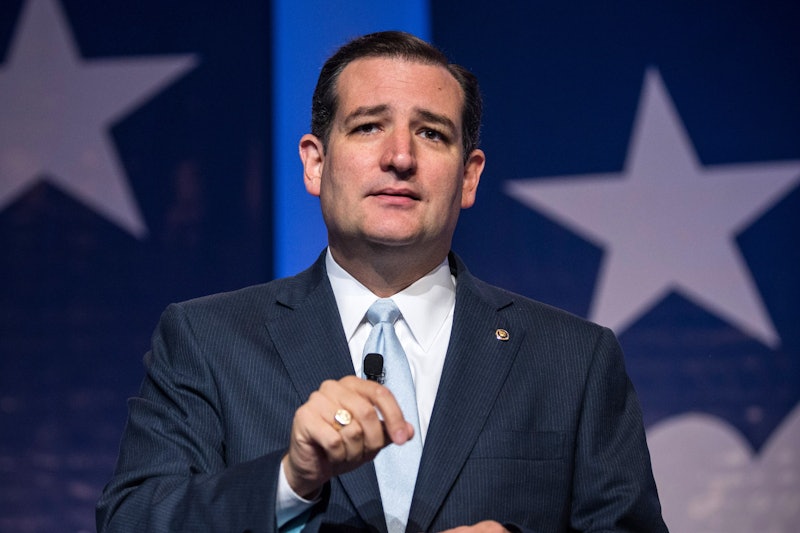News
This Bad News On Gay Marriage Might Really Be Good
While LGBTQ rights have made remarkable progress just in the past few years alone, it would be unrealistic and naive to assume everyone is on board with same-sex marriage. The 2016 election will prove interesting as candidates publicly opposed to gay marriage will be riding against a mostly national sentiment that supports it. One of these candidates to look out for is Ted Cruz, who reiterated his opposition to gay marriage in a statement on Thursday night.
Cruz's statement was in response to an article in The New York Times reporting on his remarks at a private gathering hosted by "two prominent gay hoteliers" in a Manhattan apartment. According to the article, attendees recalled Cruz saying he would love his daughters the same even if they were gay and that legislation on same-sex marriage should be left up to states; not once mentioning his opposition, which suggested the Texas politician had perhaps softened his private stance on the issue. Cruz retaliated: "It speaks volumes that The New York Times considers it newsworthy that a Republican who believes marriage is between a man and a woman would meet with people who hold a different view. We're not always going to agree on everything, and I'm not going to change my fundamental values."
While it might be wishful thinking to expect politicians to do as they say (and vice versa) — Cruz's tolerant comments are in stark contrast to his active public hostility toward gay marriage — it is particularly important in this case, considering public opinion on this issue. Could it be that Cruz's allegedly wonky stance on gay marriage indicates some sort of national progress?
In the 2012 election, virtually all Republican presidential primary contenders opposed gay marriage, including favoring a constitutional ban. But the GOP's nominee, Mitt Romney — famous for flip-flopping and his remarks on the "47 percent" — appeared to change his stance on gay marriage when he ran for the nation's highest office. During his campaign, he waxed poetic on the sanctity of marriage, but many pointed to his past comments touting himself as an effective leader to establish "full equality" for the LGBT community.
Even further back, during the presidential election in 2008 — way before the widespread support for gay marriage when the issue was not as urgent as it is today — presidential candidates from both parties opposed gay marriage (yup, even Barack Obama and Hillary Clinton) but largely said that legislation should be left up to the states.
Interestingly, the sole conservative figure who hinted at a sort of personal comity on the issue was Sarah Palin, who said that she had a best friend who "happens to be gay," though she then added that it was not a "choice" that Palin herself would have made, echoing the flawed notion that homosexuality is a lifestyle option. During her time as Alaska governor, Palin was public about her belief that marriage was between a man and a woman and supported an amendment to the state constitution that would ban gay marriage, but curiously, she also vetoed a bill that would deny health benefits to public employees' same-sex partners because she considered it unconstitutional.
As the Supreme Court ruling on gay marriage looms large, those vying for the presidency will have to take a close, hard look at both their beliefs and the nation's mood. For now, I think it's fair to say that politicians like Mick Huckabee, a potential 2016 candidate who said that homosexuality was akin to drinking and cursing, is on the wrong side of history — and perhaps Cruz's remarks is a sign that many social conservatives are slowly, quietly admitting that they're changing their minds.
Image: Getty Images (3)
